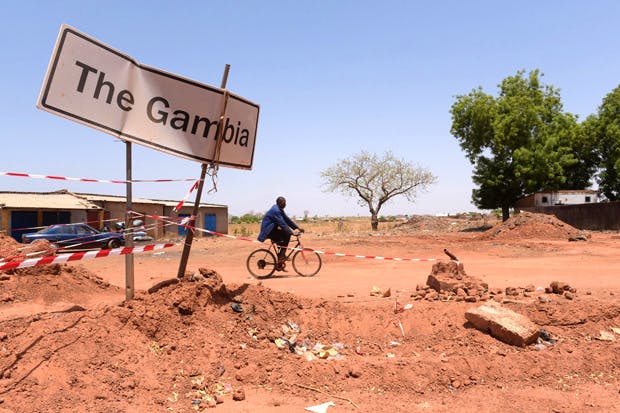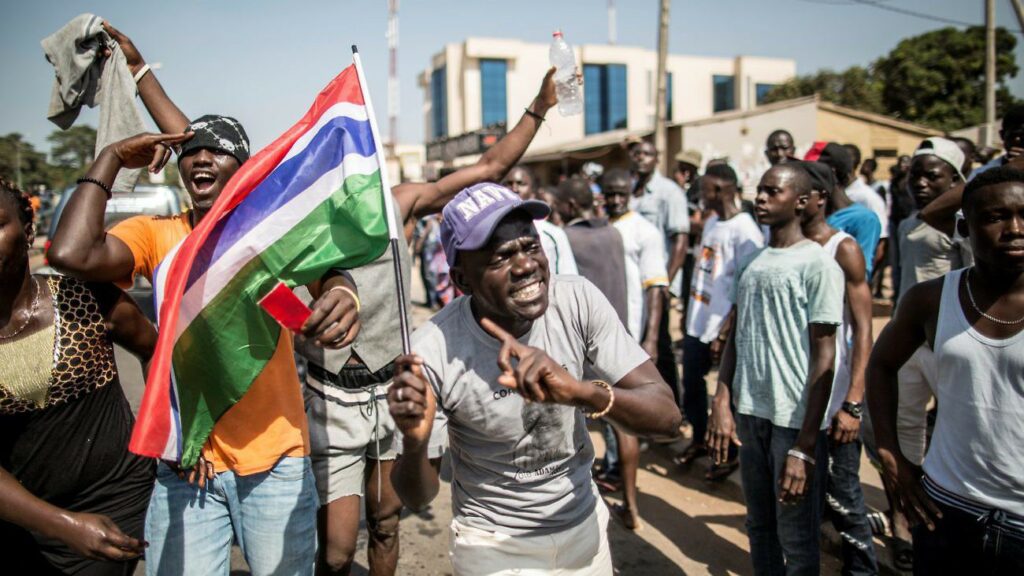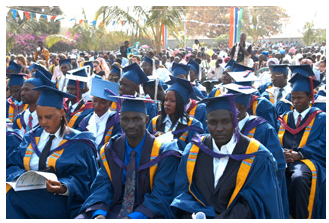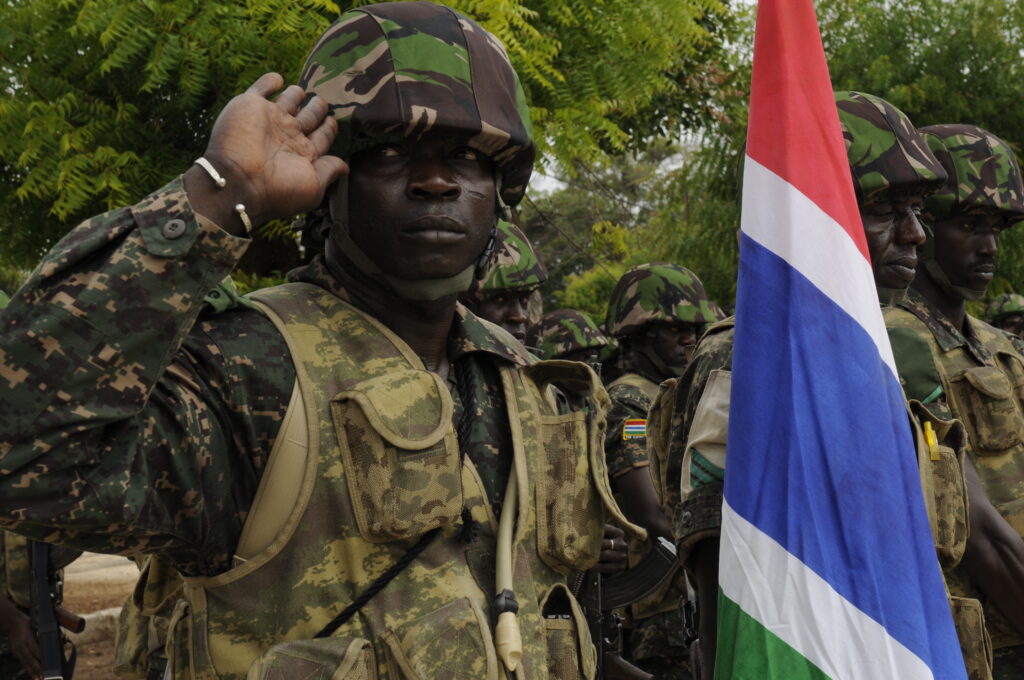
Frantz Fanon wrote his last book, The Wretched of the Earth, battling leukemia. Fanon saw that African politicians/educated elites made the grave mistake of confusing the politics of race with different ethnicities’ culture.
Fanon strongly cautioned African politicians against adopting the colonial culture of dishing out power and resources based on skin color and cultural identity, all in the name of “Africanization.”
Instead, Fanon called for the adoption of a national identity based on social and political consciousness. He argued that the temptation to focus on culture rather than consciousness resulted in African leaders simply replacing white skin in government with black. That simplistic reasoning trickled down to the masses, who then perpetuated the same bigotry through ethnicity.
There are political, social, economic, educational, and numerous other dimensions related to Gambia’s failure to transform into a nation. As a researcher, what interested me in my research focuses on the lack of critical thinking and imagination from educated fools in the public sphere.
Sometimes, I feel that Gambia’s natural enemies are the educated elites or those described by a psychology professor at the University of Toronto, Jordan Peterson, as the pseudo-intellectual dark web or the educated fool.
These individuals are highly cerebral and often hold multiple degrees from renowned colleges and prestigious universities worldwide. They are frequently exposed to the best practices in good governance and accountable leadership, but for reasons unknown, engage in double standards, disguised duplicity, bigotry, ethnic chauvinism, elitism, classism, homophobia, misogyny, regionalism, and selective condemnation: an educated fool.

They mainly engage in the virulent pull of tribalism in their commentaries about how not to wage an anti-corruption war against political elites and power-addicted politicians who work in government and those power-addicted classes of political opposition.
Suppose I had my way about who and what ordinary Gambian citizens should confront first to rescue the nation. It would be the power-hungry tribal lords masquerading as democrats and patriots.
This thieving class within the government and its rogues and careerist politicians in the opposition —the “pretenders and scoundrels “—are no more than educated elites-turned-commercial commentators, test tube lawyers, clicktivists, armchair activists, or pundits. They have ceaselessly served as “Jalibas” for career opportunism.
Last year, I wrote about our nation’s collective failure to transform our unique identities into social and political consciousness. As always, Frantz Fanon inspired me, but so did Saidou Doro, a fourth-generation Gambian of Fulani- Haalpulaar descent, who engaged in a series of bureaucratic games to acquire a job, a passport, and other legal documents, simply because he belonged to the “wrong” tribe.
Despite these challenges, however, he was not bitter. When asked by reactionary Gambians what does he supposed to do, he would say, Saidou Doro has this simple message “Those who enjoy the ease in getting their identity cards or IDs and enjoy their rights should speak on behalf of those who do not.”
Perhaps the fascinating thing about the academic failure and our lack of nationhood is that the “so-called- educated Gambians,” who have access to the best education and the most incredible international exposure, comprise, for lack of a better term, the dumbest lot of Gambians there they remain stuck in the feudal era, pitting propaganda and state violence against those with a modern, national consciousness.
The latter feel defeated; when the oppressed speak of democracy, justice, and the rule of law, they reply with traditionalist propaganda and rituals.
The problem is not one of education; it is a problem of consciousness. The current ruling elite is, stated crudely, intellectually backward. As I have chronicled in my last paper, it is crushing to see us so unable to aspire to the sophisticated thinking required of modern civilization—one where we plant trees in whose shade we will not sit—one in which we think not of what we can acquire but what we can provide.
Where we believe not, “What is in it for me?” but, “What does it mean for all of us?” We understand that talking about “privilege” is not an attack on a person but a reference to a system involving people. We affirm that life matters and insist on atoning God. Our ancestors for life lost unjustly where we think deeply and philosophically, not fixate on the superficial.

The failure to understand these concepts is indicative of a severe intellectual problem in The Gambia. The nation desperately needs a government and a responsible opposition with common sense—any sense—and I hope to discuss why this consciousness remains so alien to Gambians.
Ask other Africans what we Gambian sound like and be surprised to hear how blonde we Gambians are. The major problem, Fanon said, was that African leaders were not genuinely interested in nationalization.
Instead, they settled for the mere “transfer of power previously held by the foreigners, [and letting] the masses make the very same demand at their level: “Once this situation is entrenched, the difference between racist chauvinism and tribalism is ‘but one small step.'” Fanon explained.
African nations would rapidly slide into tribalism because African leaders failed to enlighten “the people” or “put the people first,” the result of the national bourgeoisie’s “petty-mindedness” and lack of ideological clarity.
Fanon essentially said that national identity could not be constructed on pre-colonial identities and skin color. National identity must be built ideologically and politically.
However, tribalism has been created by politicians–the very people who become stronger by dividing us. Gambians are not naturally tribalistic; they are inherently human, so they love, laugh, collaborate, and start families with each other.
The way to fight against tribalism is not to sing about diversity and how people eat, drink, dance, or marry differently. They fight against tribalism by fighting for justice for all Gambians, by their adherence to principles that surpass ethnicity—like the need for a quality education system and adequate public healthcare.
It also means that every time a politician appeals to your tribe, suggesting that, perhaps, your actions are politically motivated, do not fall into the trap of trying to justify yourself. Name the monster for what it is, and recognize that the politicians seek to distract you from the issue at hand by calling attention to one’s ethnicity. Send that monster to the bottomless pit, where it belongs.
Gambians must relinquish the collective obsession with their tribes, even with this diversity and love-one-another and respect-each-other ‘s-cultures hogwash. They need to start asking, “What are institutions doing to foster nationhood?” Right now, the answer to that is, essentially, nothing.

Ultimately, this reality is what will lead to implosion—not tribalism. In many ways, tribalism is like the flu; it is an opportunistic disease that will take advantage of those with no immunity.
Consider how it can overtake Gambians with no social consciousness; a society falling apart with a center that cannot hold is only lying in wait to be overtaken and destroyed from within.
The Gambian people must understand that Rwanda’s genocide was not about tribes; it was about institutions. The schools there taught a divisive history; the churches preached it. The radios broadcast it by giving a platform to politicians spreading hate.
The government armed the militias and made identity cards to indicate whether one was Hutu or Tutsi. To many, it mattered not that some Hutus paid with their lives because their killers thought they looked Tutsi.

The Rwandan government had diplomatic ties and was even a non-permanent member of the UN Security Council. France supported it, offering a shield from international scrutiny as it murdered Tutsis.
There are political, social, economic, educational, and numerous other dimensions related to the failure of The Gambia to transform into a nation. Gambian political leaders’ success causes this during and after independence.
The problem has exacerbated the current breed of politicians who rule the country. This tribalism in the diaspora story should make Gambians indeed recognize that they are broken people.
The paradox in all of this is that ‘tribal racism’ does not make tribalists more beautiful; instead, it turns their minds darker, and their hearts become ugly with hatred.
By Alagi Yorro Jallow











Recent Comments